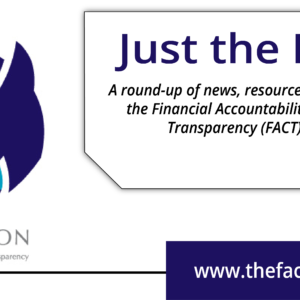
The Global Trend Towards Corporate Tax Transparency Accelerates: Just the Facts: March 22
These past few weeks have seen “explosive” momentum in the movement for tax transparency. The United Nations High-Level Panel on International Financial Accountability, Transparency and Integrity for Achieving the 2030 Agenda (FACTI Panel) published their report in late February, recommending a broad slate of much-needed global reforms including public country-by-country reporting (PCbCR) of taxes and other financial information by multinational companies. This year, the Global Reporting Initiative put into effect the first global voluntary standard on public country-by-country tax reporting. The standard, known as GRI 207, has already attracted early support from Philips, Orsted, Alliance, and Newmont.





